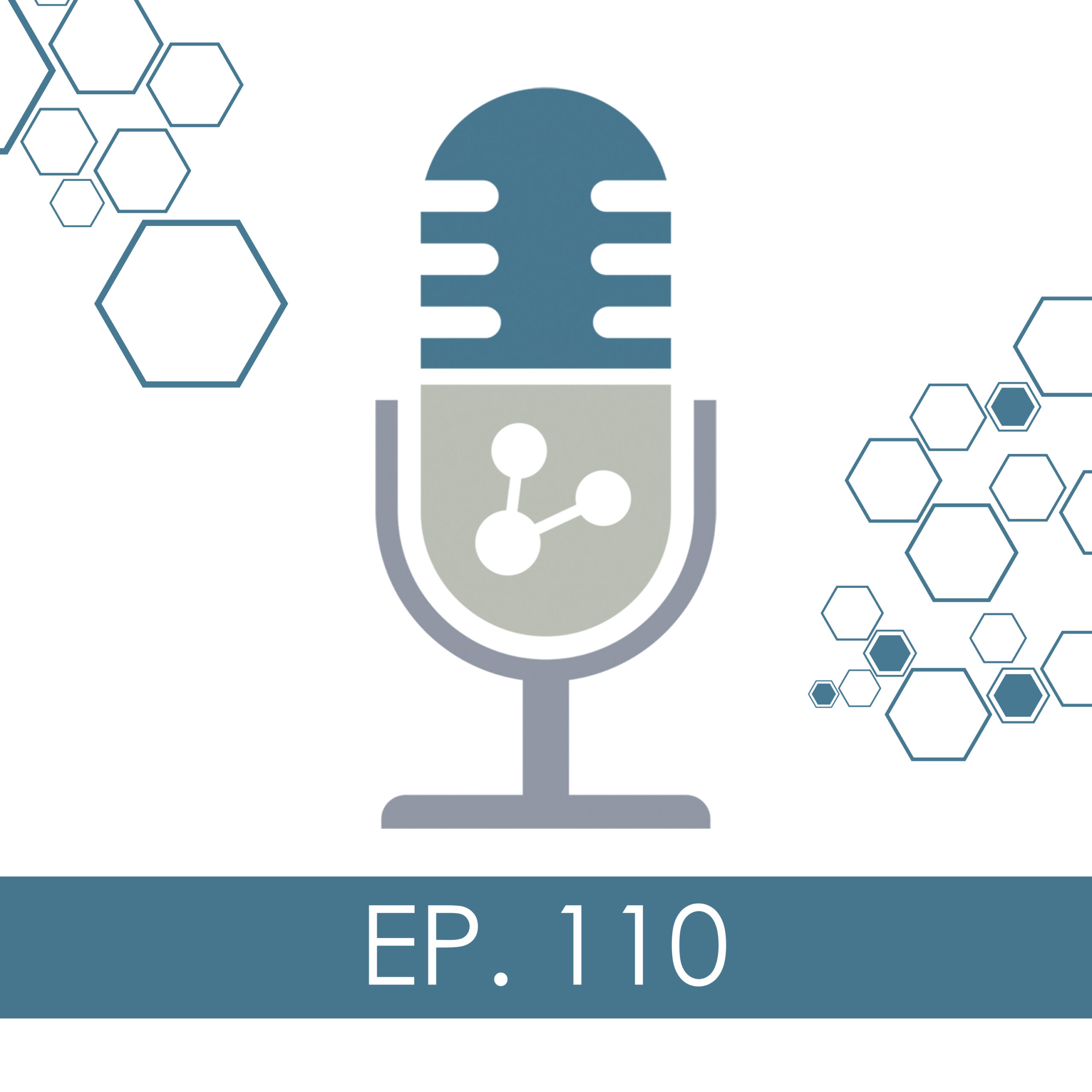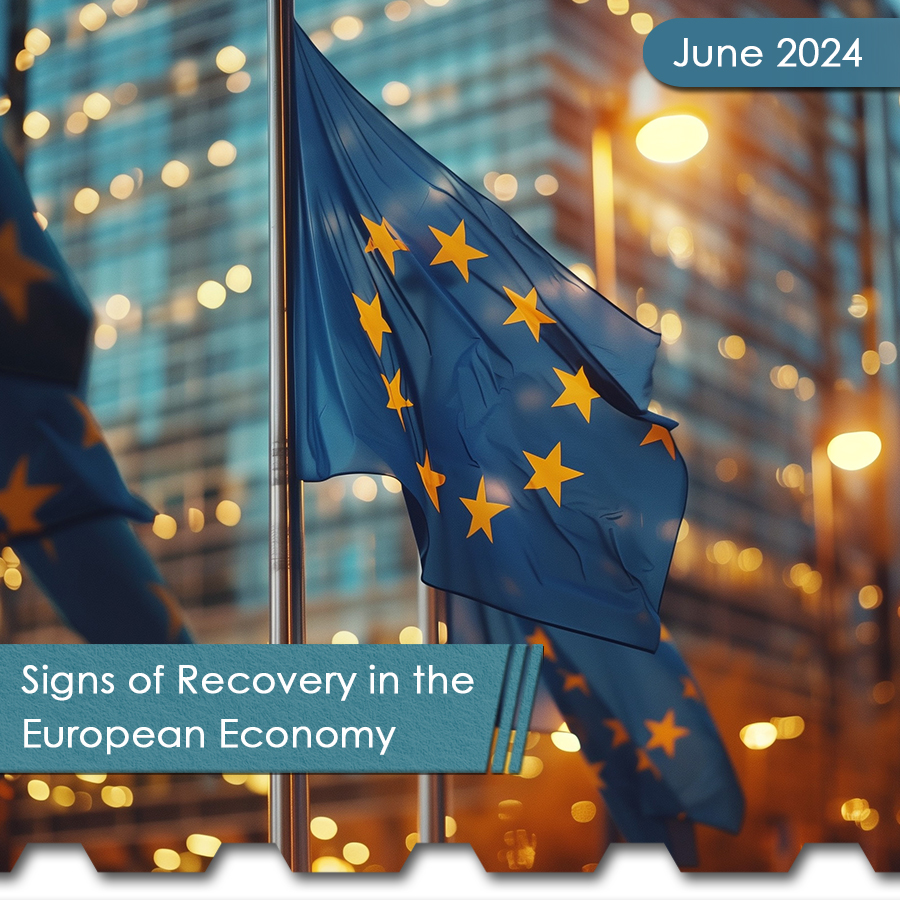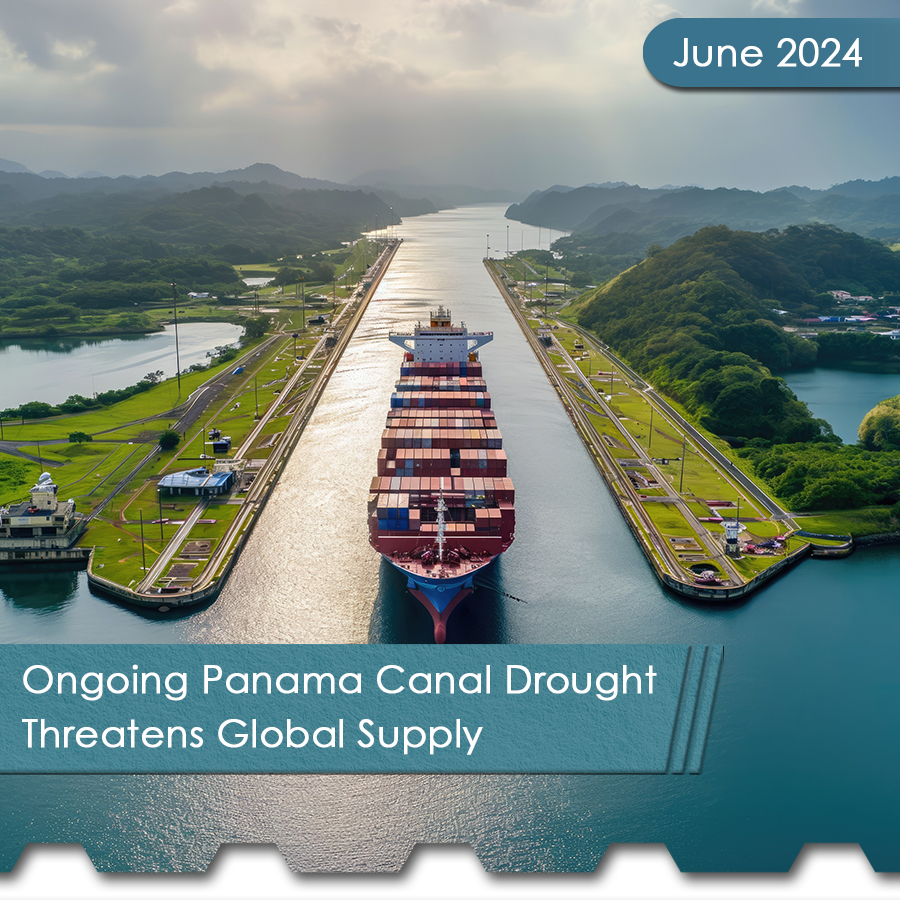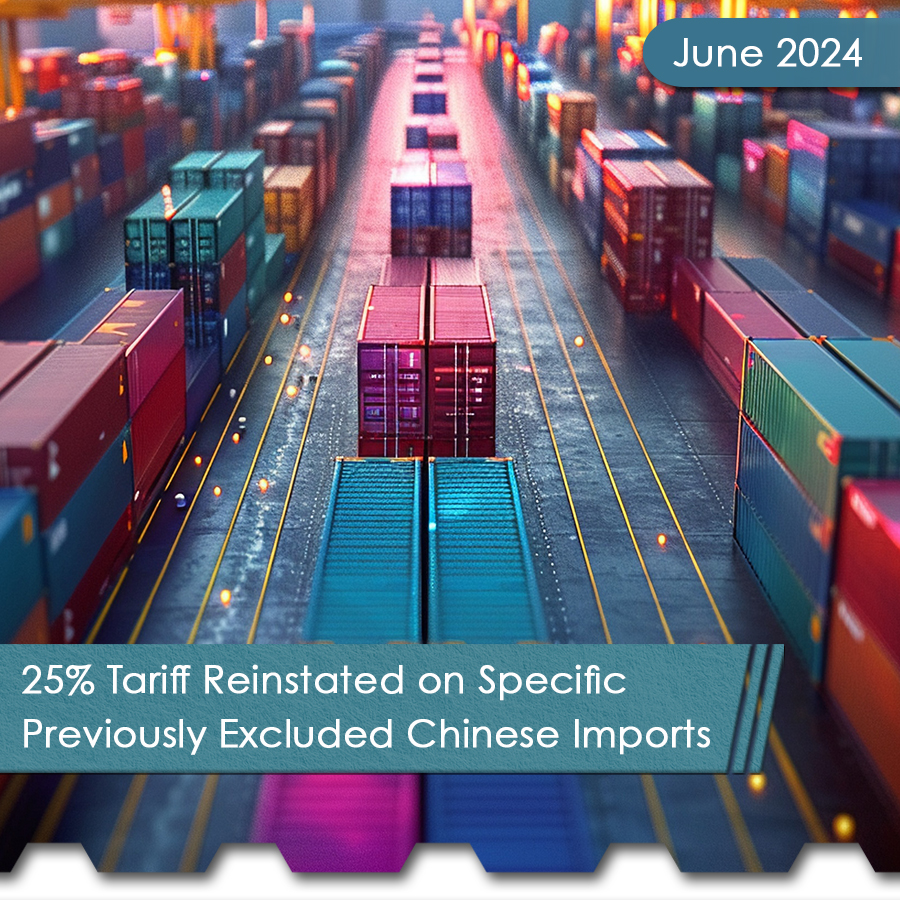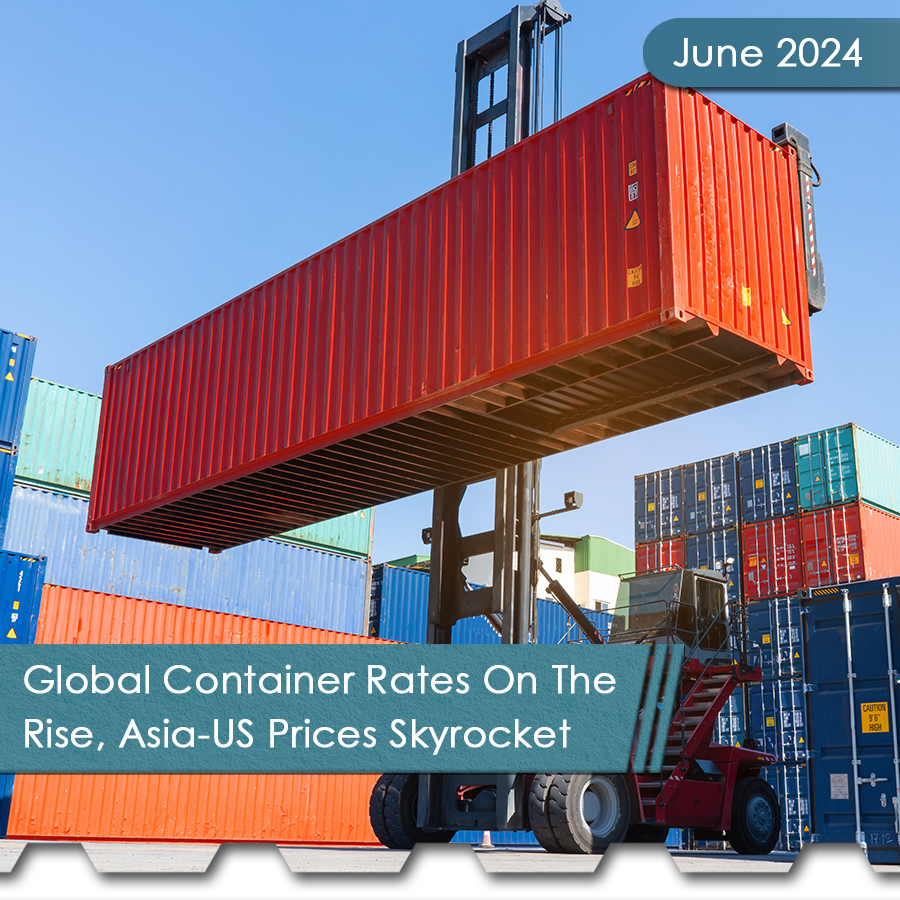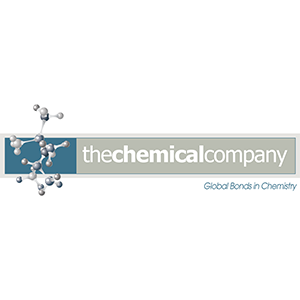Episode 044 | September 2020
– First in-person episode in the podcast studio with the full team!
– Update on the Coronavirus situation, and expected plans for reopening
– Hurricane Season & a reason to bolster raw material inventories
– Latin America Update from Javier
– Economy starting to re-open, production rising
Featuring:
President Robb Roach
VP Sales & Marketing AJ Petrarca
LatAm Ops Manager Javier Fernandez
Marketing & Sales Specialist Ben Sawicki
Production by Kettlebottom Creative: www.kettlebottomcreative.com
Full Episode Transcription:
Ben Sawicki:
Welcome to The View from Jamestown: Podcast Edition. This is Episode 44, this is September 2020 edition. And we’re sitting down for the first time in person in a while with TCC President, Rob Roach, VP of Sales & Marketing A.J. Petrarca, and Latin America Operations Manager, Javier Fernandez.
Javier Fernandez:
Hello.
Ben Sawicki:
Morning, everybody.
AJ Petrarca:
Good morning.
Rob Roach:
Hello. Hello.
Ben Sawicki:
Nice to see you guys in person.
AJ Petrarca:
Good to see you.
Rob Roach:
Yeah, it feels good to be here.
Ben Sawicki:
Yeah. Javi’s Day 1 back since what, March? [crosstalk 00:00:37].
Javier Fernandez:
March, Since March 12th, I think. It was first day back in the office.
Ben Sawicki:
Very nice.
Javier Fernandez:
Yeah. I had to put my GPS on to see where it was.
Rob Roach:
First day working since 2012.
Javier Fernandez:
Yeah. It feels like January.
Ben Sawicki:
Car battery was probably dead.
Javier Fernandez:
Yeah. But glad to be here.
Ben Sawicki:
Welcome back.
Javier Fernandez:
Thank you.
Ben Sawicki:
How’s everybody else doing?
Rob Roach:
Doing good. Doing good.
AJ Petrarca:
Excellent.
Ben Sawicki:
Yeah. Very nice. Very nice. If you can hear some background noise, there’s a little bit of landscaping going outside, getting the property ready for everyone to come back to the office, which is, I guess our first segment that we’re looking at potentially open back up here within the next couple of weeks.
Rob Roach:
Yeah. A week from next Monday, September 14th. We’ll have everybody back full-time, under restrictions, wearing masks and all the safety protocols in place. Because coronavirus is still out there, but we really need to get everybody back in and back to work. Because things are starting to pick up and it’s time to get back to get our nose to the grindstone.
Ben Sawicki:
And I’m starting to feel like it’s back to normal a little bit, even just having Javi back this morning and feels more normal. It’s fun to have everyone back around, but definitely get more done and definitely productive having everyone back under the same roof.
Rob Roach:
Same. I mean, everybody wants to say that working from home is effective and it’s just as effective. It’s not, it’s not, I mean, at least not for our business. So I mean, that’s people that don’t want to go back to work that are propagating that bull , when you’re in an office environment and something comes up and you can stand up and go see somebody and get something done, it’s just not the same over GoToMeeting or Zoom or what. It’s just not the same. So I just cannot wait to get back to the point where we’re able to travel and go to Europe, go to Asia, do what we’ve known how to do for our whole careers, which is get on the road and make relationships and sell. And I don’t think will be that long. I think it’s coming soon. Hopefully.
Javier Fernandez:
Yeah. Some countries are opening up already. Some countries are opening up for visitors. So that’s important. Others want to keep closed, but things are changing in a good way. So that’s promising for us and for everyone else.
Rob Roach:
I think that’s because there’s more of an understanding of COVID-19 and treating it and there’s been some great results from Remdesivir and the Z-pack steroid combination. So you’re seeing less deaths from it and people are being conscious about protocols and wearing face masks. And we know more about how it’s spread, that it’s mostly aerosol. And so, it’s been nice recently just to get, as we started with just some normalcy back. I don’t think we can mentally go back into that shutdown very easily. It’s been a very dark, dark time for our country and for the world.
Ben Sawicki:
It’s going to be kind of a twofold thing. I think to either step one is people come back to the offices, step two is actually allowing visitors. And I think we’re all excited to start traveling again. But you know, who knows when that policy is going to open back up to allow outsiders.
Javier Fernandez:
A lot of companies are not allowing visitors for months or until next year. So yeah, it’s going to be a while until conferences start back up, like our conference sheet, it’s [crosstalk 00:04:13].
Ben Sawicki:
Empty. It’s very sad.
Javier Fernandez:
Very sad. There’s no conferences or trade shows coming up.
Ben Sawicki:
I know.
Javier Fernandez:
Another thing, that’s a key part of our business. That’s where we developed most of our relationships, finding suppliers, touch base with current customers, and find new ones.
Ben Sawicki:
Yeah. So looking forward to getting back to go see customers, get back to trade shows, get back to conferences, whatever that timeframe is. I think we’re all excited to get back to some sense of normalcy with all that good stuff.
Rob Roach:
It won’t be long. It won’t be long. So I mean, we’re humans and humans by nature are gregarious. We want to be together with other humans. Like I said before, this has been a dark period where we’ve had to create separation and the amount of anxiety, this is unprecedented, at least for all of us in this room and many, many more, unless you’re a much older than us that you’ve been through a pandemic. But we’re going to learn from this and we’re going to move forward. We’re going to learn.
Ben Sawicki:
Yeah. I think coronavirus aside, the biggest thing we’ve seen in the last couple of weeks and definitely coming into the fall is the hurricane season. Early full swing, but definitely in full swing had Hurricane Laura come through this week. Luckily it seems like not too much in the chemical supply chain was affected, but obviously a lot of devastation and something to keep an eye on.
Rob Roach:
Yeah. There was a lot of people that brought their plants down in anticipation of the storm’s approach and its contact with that area. I think you had about 29, 30% of the ethylene capacity down. Certainly starting to have an effect on that cost. You’re seeing about a penny and a half increase on ethylene prices, but it’s definitely something to pay attention to that. That drop of Hurricane Laura, before it made landfall. Boy, that looks scary. I mean, it was a cap 450 mile-an-hour winds and the temperatures in the Gulf are abnormally high. We just had our hottest summer on record ever in history. So that’s perfect recipe for very large, strong hurricanes. So definitely something to pay attention to.
Ben Sawicki:
And leaves something for product managers and everything else looking at moving inventory and making sure customers are supplied. I think been a big thing in the last couple of weeks.
Javier Fernandez:
I think we’ve been preparing since this, since the beginning of the year with same timeframes. So we have been moving stuff around. Well we have alternative warehouses with some product just to have Plan B, Plan C, Plan D.
Ben Sawicki:
Yeah.
Rob Roach:
I mean, it’s a significant expense on the company, but the preparation is key. Our goal as a company is to keep people readily supplied and no matter what, if it’s going to cost us a little more to do that, we’ll do it. And as Javier mentioned, we knew that it was going to be a tough hurricane season. We move product out of those corridors and put them in new warehouses and God forbid something does hit and inevitably it will, we’ll have some backup. So it’s good to have that precaution.
AJ Petrarca:
It’s like an insurance policy. You hope to not have to need it, but it’s good to… [Crosstalk 00:07:24].
Rob Roach:
[crosstalk 00:07:25] Yeah. Absolutely.
AJ Petrarca:
…to have it when it happens.
Rob Roach:
Absolutely.
Ben Sawicki:
Yep. At the same time, I mean, crude oil is still going up, stuff’s getting more expensive, so it’s not a bad time to load up at inventories.
Rob Roach:
No, I think you’re just going to see things get far worse. I mean, when you see a downturn, like we saw with COVID-19, especially April, May, June. Most large producing chemical plants are continuous. So you got to throttle them back or you’ve got to shut them down. And now we’re seeing things return in terms of demand is starting to happen very rapidly. The supply chains have been broken. So we’re already seeing some major problems in some of our major products in terms of supply because our producing partners didn’t anticipate the return to happen so quickly from zero, from almost nothing. And now there’s a returning demand. And when you see three, four, five months of zero, and then a return somewhat to normalcy watch out, you know, it’s going to hit the fan.
AJ Petrarca:
Yeah. Monday morning quarter-back. It would have been good to do turnarounds back in April, May, not start doing them now… [Crosstalk 00:08:37]
Javier Fernandez:
[crosstalk 00:08:37] Some of them did.
AJ Petrarca:
…August, September. Yeah, some of them did
Ben Sawicki:
Some of them did.
Rob Roach:
Yeah, that would have been prior planning preventing poor performance right there. Because nobody had a good May or June and, even April because of the lockdown. We’re starting to see some major impacts on some of our major products because of that.
Ben Sawicki:
And that’s also a good point too. I think we’re seeing some positive reports of the economy starting to pick back up a little bit. Automotive production, U.S. Production as a whole seems like it’s taken up a little bit. Seeing some positive reports, it seems like the last couple weeks.
AJ Petrarca:
Yeah. Demand has definitely seemed to pick it up for sure in July and into August. Still seems sort of flat, I thought it would be a bigger uptick. But it’s good to see the demand returning. Because April, May, June were painful for a lot of people. So it’s good to see the return of demand a little bit.
Rob Roach:
Yeah. And the numbers show that it’s not normal. We’re below normal, but there is definitely some uptick in demand and hopefully that’ll continue as we get towards the end of the year and we get through the election cycle.
Ben Sawicki:
Yeah. I think that was one of the big question marks when all this started was “Is going to be a three-month U, is it going to be a four-year U. I mean no one knows what the lead times are going to be.
Rob Roach:
It depends. It’s all opinion right now. Some people think that things are going to rapidly get better and some people think this is a long haul issue. So, I’m kind of in the middle there. I think that we’re going to see the problem is that inventories are so low and they were low prior to this.
Rob Roach:
And I think we’re going to see some disturbing trends in the next year here if demand does pick up and, and supply chains don’t catch up.
Ben Sawicki:
Yep. Quick logistics update, it seems like what we’ve seen in the past episode, it’s definitely a little bit tighter. There’s I think we’ve had some drivers dropping loads to the last second to go get up to a higher price piece of business and things like that. So definitely a lot of that, it seems like availability is still a little bit tight. I don’t know what you guys are seeing, domestically and internationally
AJ Petrarca:
I’ve noticed domestically, especially on long haul runs, people don’t want to necessarily travel outside of their state or do multi-state runs just due to different protocols when it comes to lockdown when they get back or quarantine when they get back. So that’s been tightening up a little bit and increasing rates yeah.
Ben Sawicki:
Javi, internationally the stuff, import-export wise.
Javier Fernandez:
Import-Export wise has been difficult. Some lanes have been cut down significantly. You have the weekly lanes, they’re not doing bi-weekly and also huge increase due to the lack of capacity.
Ben Sawicki:
Yeah.
Javier Fernandez:
Huge increase coming in September and October. We have had some, this morning I was reading a couple of products that we do on a regular basis. And then main reason it was just a constant freight.
Ben Sawicki:
Yeah.
Javier Fernandez:
The major increase.
Rob Roach:
Yeah. You’re also, I saw some of your emails and stuff that people just simply don’t have product to sell.
Javier Fernandez:
Yeah.
Rob Roach:
Which is surprising, you know, but I guess not surprising at the same time.
Ben Sawicki:
And I guess a good bridge right to an overall Latin America update, how’s things, looking in south of the border?
Javier Fernandez:
Things are looking better south of the border, things are looking better. Automotive picked up in Mexico, which is a big part, it goes hand in hand with the U.S. because a lot of the parts that are made in Mexico end up back here as a finished product in the cars and trucks that we all drive and in Brazil, things are still in lockdown. The cases are spiking. Peru, where I’m from, it’s the number one country, highest mortality rate.
Rob Roach:
Wow.
Javier Fernandez:
Yeah. They surpassed Belgium last week. And it’s not a good thing to be number one on that.
Ben Sawicki:
Yeah.
Javier Fernandez:
So things are not good back home.
Ben Sawicki:
Do you know what the rate is? What their mortality rate is?
Javier Fernandez:
82 persons per thousand.
Ben Sawicki:
Okay.
Javier Fernandez:
Yeah. And there’s informality, there’s lack of UCI, beds, ventilators. It’s showing how bad the system is in Peru now that they put them to work.
Ben Sawicki:
Yeah. Your parents obviously live in Peru, and then your wife Angela’s family lives in Columbia. So you guys kind of get a first eye-view on what it’s actually like day to day in a lockdown.
Javier Fernandez:
Yeah. There are no flights between the U.S. And those countries for now. Hopefully they will open back up.
Ben Sawicki:
Yeah.
Javier Fernandez:
Because my parents are dying to come to see the baby.
Ben Sawicki:
Yeah.
Rob Roach:
Yeah. Yeah.
Ben Sawicki:
Yeah.
Rob Roach:
Well, that’s too bad, it’s [crosstalk 00:13:37].
AJ Petrarca:
It’s part of the game, you know?
Rob Roach:
Yeah. Yeah.
Ben Sawicki:
So hopefully stuff keeps turning around and on the rise with production and cases on the declines.
Javier Fernandez:
Yeah. But automotive is a good sign. Paints and coatings is still back and running. People are doing a lot of projects while they were in lockdown. So paint, it’s happening in Mexico.
Rob Roach:
That’s the one thing we’ve seen a lot of, is a lot of R&D projects, a lot of innovation happening, which has been cool to see. I mean, a lot of this stuff is more longterm, but our samples and our discussions technically have really taken off during this and I think that’s hopefully what we’ll see overall is that innovation will really take over here and help us through this dark time.
Ben Sawicki:
Yep. Price, updates, and trends for August. It seems like stuff’s been really pretty flat. I mean, crude oil, Brent crude, pretty flat and gas up a little bit. Benzine seems like that’s coming down maybe 10 cents for September, but it seems like overall [crosstalk 00:14:38] it’s just been relatively flat.
Rob Roach:
[crosstalk 00:14:39] Propylene’s up, ethylene is up. So those are two major drivers. So especially with Laura hitting in Beaumont, the prices of ethylene have come up quite a bit. Keep an eye on propylene. There’s a new forecast on propylene. Looks like it’s going to move up steadily through the end of the year. We haven’t seen too much of an effect from Laura on crude oil. It’s still, right around 43 ish, but that could change pretty quickly. So especially if people start flying more, traveling more, driving cars more. So definitely something to keep an eye on.
Ben Sawicki:
And they’ve heard us talking about it’s a lot more supply and demand versus actually what the raw material pricing is doing.
Rob Roach:
Yeah. I would say that’s the driver today for sure. You know, the NASDAQ, the DOW, they’re certainly erased the losses from the coronavirus, but there’s still… I mean, Apple, isn’t the whole economy, Microsoft, Apple, Amazon, that’s not the whole economy and certainly not the DOW or the NASDAQ, is certainly not a reflective of the overall economy. So even though we’ve erased those losses small businesses are not doing well. You go around and you look at stores that were selling crafts or pet stores. They’re all shut down. They’re all closed. You drive down Post Road here in Rhode Island, there’s barely a store open. So things aren’t going well for small business. And that’s key, we really have to rebuild small business. We have to rebuild the middle class, just pointing to the stock market and then low interest rates and lots of home sales, that’s not reflective of a good economy. So I’m not a believer in that.
Ben Sawicki:
Speaking of that, did you see Blackie is close up in Smithfield?
AJ Petrarca:
I did see that this morning. [crosstalk 00:16:40]
Javier Fernandez:
[crosstalk 00:16:40] They did?
Ben Sawicki:
Yeah.
Rob Roach:
Wow. Well, they said at 25% in Manhattan, 25% New Jersey, now that people can open their restaurants. I mean, our kids, they’re building tents outside for them to go. I mean this is new England. What’s going to happen to October, November, December, January, when they want to eat their lunch and they go outside in a tent? I mean, I’m hearing that even universities are building tents for people to eat in and everything’s to go. So no things are, are still pretty messed up. Just because the stock market has rebounded and come back from its losses, we’re not out of the weeds yet. And then remember the last time we saw a major recession was just ahead of the election. So now’s the time to pay attention. We could could re-lose everything we’ve gained when people start to realize how messed up things really are. So just looking at housing sales, the DOW, it’s just not reflective of really what’s going on.
Ben Sawicki:
Nope. Javi, I’m going to throw you a softball, do you want to do our trade show update?
Javier Fernandez:
What is it? Oh yeah, it’s empty. It’s empty, there’s nothing.
Ben Sawicki:
I’m trying to let you ease back into the work life.
Javier Fernandez:
Yeah. I’m just listening. Yeah. But it’s empty that we don’t have any trade shows or upcoming events. It’s sad to see that, but it’s coming back. I think 2021 will be a good year for trade shows and be back on the road. But so far, it is empty. There’s nothing. Well, we have our internal sales meeting coming up.
Ben Sawicki:
Yep.
Rob Roach:
Yep. Yep.
Javier Fernandez:
That’s in early October. So we’ll have that. It’s going to be through Zoom or GoToMeeting.
Ben Sawicki:
Yep.
Rob Roach:
Yep.
Javier Fernandez:
And it’s fun because we can get suppliers from different time zones all over the world, which we are, we’re a global company. We can fit them in the same schedule, same day.
Ben Sawicki:
Yeah. That’s kind of a subtle positive, I guess, if you will, versus using GoToMeeting more. Probably never would have set it up or used it otherwise. And now we’re going to do these quarterly meetings. It’s kind of a nice thing I think.
Javier Fernandez:
Silver lining.
Ben Sawicki:
Yeah.
Rob Roach:
And the EPCA, there’s a lot of people that are now setting up meetings for when we’re supposed to be in Budapest this year for the EPCA. So there’s that coming up and there’s a lot of exciting stuff coming out of from our producing partners. They’re being innovative during this time and coming out with new products. So there is a silver lining there.
Ben Sawicki:
And that’ll be an interesting topic. I think, when trade shows start happening again. Is there going to be limits? Is it going to be a bigger venue so you can spread out? What our trade shows going to look like? It’s going to be [crosstalk 00:19:29].
Javier Fernandez:
[crosstalk 00:19:26] Stadiums.
Ben Sawicki:
It’s going to be interesting. Yeah.
Javier Fernandez:
Stadiums, six feet apart, because we were usually crammed in a hotel lobby and then you got to go up and down, the elevators are full or crammed. So it has to be something spread out.
Rob Roach:
What about shaking hands? I mean, elbows.
AJ Petrarca:
I still reach out to shake people’s hands without even thinking of it. I don’t know.
Javier Fernandez:
The first bump.
Rob Roach:
I had a family party on Saturday. You want to talk about awkward? Everybody who hugs and kisses and you walk up, you don’t know what to do. You’re just kind of like, what do I do now?
AJ Petrarca:
I’ll hug, if you want to hug.
Rob Roach:
Give me permission. You give me Corona. I give you Corona, you know?
Ben Sawicki:
Yeah. It’s very interesting. One of our favorite shows is the Chemical’s America show. That’s twice a year and that’s packed in. It’s very busy. It’s very tightly knit in there. It’s a great show because of that but if you can’t have that many people or you can’t get that pack down, it’s… [crosstalk 00:20:24]
Javier Fernandez:
[crosstalk 00:20:24] Is that going to be virtual or? What’s the story of that show or has it been moved?
Ben Sawicki:
I think it’s just been canceled out-right for this year. But that’s going to be one that you have to move to a bigger venue, you have to have less people. I mean, it could affect how good these shows really are.
AJ Petrarca:
Yeah. I mean, I think that something like the AFPM would be the easiest to socially distance because it’s individual meetings and you can have your own conference room and sit far enough away from people. So conferences like that should be able to… [crosstalk 00:20:52].
Ben Sawicki:
[crosstalk 00:20:53] Those will come back sooner.
AJ Petrarca:
I think so.
Ben Sawicki:
Yeah.
AJ Petrarca:
I think so the trade shows will be more difficult. That’s that’s a tough one.
Ben Sawicki:
Yeah.
AJ Petrarca:
But..
Ben Sawicki:
For sure.
AJ Petrarca:
Fingers crossed for AFPM 2021.
Rob Roach:
Yeah.
Ben Sawicki:
Yeah. Yep. Wrapping things up, any other final news?
Ben Sawicki:
I think we’ve covered it.
Rob Roach:
I think we’ve covered most of it.
Ben Sawicki:
give a shout out to Josh, I guess?
Rob Roach:
Yeah. Josh Savory had a beautiful baby boy yesterday, Nathan. A sister company, the logistics company, and he’s a manager over there and does a great job and we’ll miss him because he’s going to be out with the baby for a little bit, but really excited for him and congratulations, Josh and congratulations Mom for doing all the work. So Gwen and Nathan and Josh, now there’s three in the family. So it’s exciting. We’ve had Javier, had a baby, we’ve got lots of babies and the TCC, TLC family.
Ben Sawicki:
Lots of boys.
AJ Petrarca:
Mostly boys.
Rob Roach:
All boys. Yeah. There’s a boy curse. So if you really want a boy, you should work for us and that’s all you’ll have. So I’ve got four boys, you’ve got two boys, A.J.
AJ Petrarca:
Yep.
Rob Roach:
You got a boy now, Javi. I mean [crosstalk 00:22:10]
Javier Fernandez:
The men is coming up.
AJ Petrarca:
[crosstalk 00:22:10] Yeah.
Ben Sawicki:
[crosstalk 00:22:10] Yeah.
Rob Roach:
[crosstalk 00:22:13] Yeah, Men.
Ben Sawicki:
All right. Nice to see you guys., see you later. A lot of babies during COVID it seems like, look at Javi, Josh.
Rob Roach:
COVID babies, that’s right.
Javier Fernandez:
Pandemials.
Ben Sawicki:
Pandemials.
Rob Roach:
But now we’re looking forward to getting everybody back into TCC and September 14th and we really want to thank everybody who has been very effectively working from home.
Javier Fernandez:
You’re Welcome.
Rob Roach:
Yeah, other than you. But as much as this has been a life changing event for all of us in the business and everything, people have really stepped up. I mean, there’s not people in this organization that are taking a break. They’ve actually worked harder and I got to thank you, Ben, and you A.J.. You guys have been coming in pretty much through this whole thing, staying on top of stuff and as scary as it’s been, work has been a bit of a distraction and a good thing. But it’s time to get back together and use the safe principles and safe guidelines so we can effectively work together because I think it’s more effective than working from home.
Ben Sawicki:
Yeah. I’m looking forward to it.
AJ Petrarca:
Yeah. Thank you for letting me come back and I need to get out of the house.
Rob Roach:
You’re welcome.
Ben Sawicki:
All right. Well, good episode. I think a lot of good stuff going on. A lot of stuff to talk and hopefully we’re looking forward to seeing things continue to go in the right direction with coronavirus cases coming down and production and those numbers turning back up. So looking forward to seeing what [crosstalk 00:23:55]
Rob Roach:
[crosstalk 00:23:55] We reached the goal of being together and the next goal will be maybe masks.
Ben Sawicki:
No masks.
Javier Fernandez:
Yeah. We’ll see.
Rob Roach:
We’ll see.
Ben Sawicki:
It’s going to be the new theme song of the episode, what is it rap song that says.. [crosstalk 00:24:05]
AJ Petrarca:
[crosstalk 00:24:05] Mask off, mask off.
Ben Sawicki:
The next episode theme. All right. We appreciate you for listening, whether you’re on the video version, on the audio podcast version as always, thanks for following along. If it’s your first episode, hopefully it’s been informational and definitely appreciate any forwards or shares for the episodes. So appreciate you listening as always. And we will see you on the next episode. Thanks guys.
AJ Petrarca:
Thank you.

